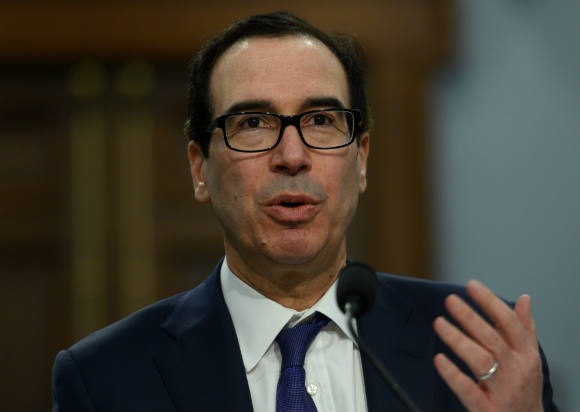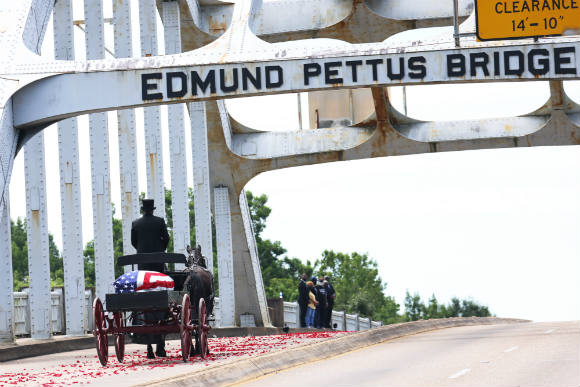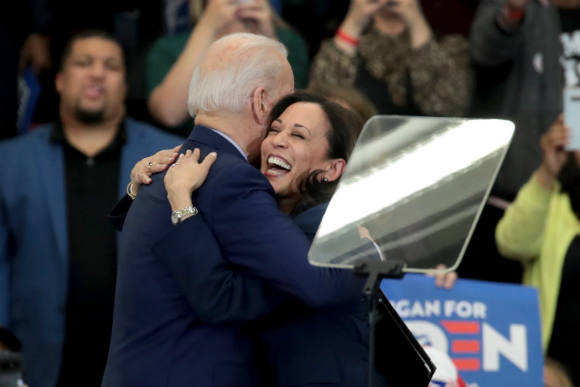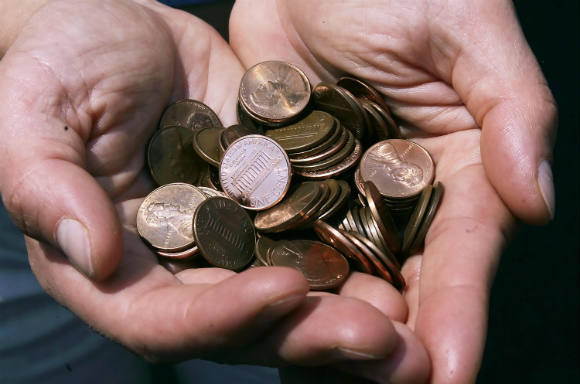The Hill’s Morning Report – Presented by Facebook – After delays, Senate GOP to unveil COVID-19 bill
Presented by Facebook

Welcome to The Hill’s Morning Report. It is Monday. We get you up to speed on the most important developments in politics and policy, plus trends to watch. Alexis Simendinger and Al Weaver are the daily co-creators, so find us @asimendinger and @alweaver22 on Twitter and recommend the Morning Report to your friends. CLICK HERE to subscribe!
Total U.S. coronavirus deaths reported as of Monday morning: 146,935.
The pandemic has surpassed 16.2 million confirmed cases worldwide and is responsible for at least 649,000 fatalities.
Treasury Secretary Steven Mnuchin and White House chief of staff Mark Meadows said on Sunday that Congress may need to pass a stopgap bill to maintain enhanced unemployment insurance to Americans. Senate Republicans are expected to release their latest coronavirus relief proposal today.
The two top negotiators for the Trump administration, interviewed on television, promoted a limited measure to modify and extend enhanced unemployment insurance before the provision officially expired. Republicans want to reduce the $600 weekly federal benefit, while Speaker Nancy Pelosi (D-Calif.) maintains that Democrats will not engage in a piecemeal approach to the next relief measure (The Hill).
“They’re in disarray, and that delay is causing suffering for America’s families,” Pelosi said of the GOP.
The Trump administration, arguing that workers should not receive more in unemployment compensation than they would earn while working, seeks to slash the temporary benefit from $600 per week to roughly 70 percent of pre-pandemic wages. Pelosi wants to extend the benefit as originally enacted in March as part of the $2.2 trillion CARES Act — an idea Mnuchin panned on Sunday as “ridiculous” (Reuters).
“The reason we had $600 was its simplicity,” Pelosi told CBS’s “Face the Nation.” “Why don’t we just keep it simple?” (The Associated Press).
Mnuchin and Meadows stopped on Capitol Hill on Sunday as Republicans put the final touches on the party’s proposed relief package, which Senate Majority Leader Mitch McConnell (R-Ky.) is slated to roll out after an aborted attempt to do so on Thursday due to disagreements between the White House and the Senate GOP. Meadows told reporters that the two sides have “an agreement in principle,” with Mnuchin declaring that they were “done” ahead of Monday’s rollout.
The GOP’s $1 trillion package is set to include another round of $1,200 direct checks to some Americans, roughly $105 billion for schools, and a five-year shield from coronavirus lawsuits, except in cases of gross negligence or intentional misconduct, according to The Hill’s Jordain Carney. Speaking in Kentucky on Friday, McConnell said negotiations with Democrats will begin this week.
“Hopefully we can come together behind some package we can agree on in the next few weeks,” he said.
The Washington Post: Top White House officials say Congress might need to rush narrow relief bill to avoid unemployment aid lapse.
CNBC: Larry Kudlow says coronavirus relief will include $1,200 checks and extension of eviction moratorium.
Some on Capitol Hill are nonetheless bracing for a prolonged negotiation despite the looming Senate recess, which begins Aug. 7. Pelosi declared on Sunday that “we can’t go home without” an agreement, indicating that the House would remain in Washington if necessary (The Hill).
Despite the abundance of drama within the Senate GOP, more is likely. Some conservative senators are howling about another steep legislative price tag. McConnell is working to keep the bill at $1 trillion because Congress has already approved roughly $3 trillion in COVID-19 relief. But once Democrats enter negotiations, proposed spending, including to bolster state and local budgets, will rise. House Democrats passed a $3 trillion measure in late May that McConnell dismissed out of hand (The Hill).
The Wall Street Journal: GOP to propose aid bill, with extra jobless benefits set to expire.
Axios: Senate Republicans grow weary with White House over stimulus bill.
The Hill: GOP senators push for stimulus checks to almost 2 million excluded Americans.
The Hill’s roundup of Sunday chat shows: Coronavirus relief, stimulus talks dominate the Washington conversations.
> RIP John Lewis: Lawmakers will begin to bid farewell on Monday to the late Rep. John Lewis (D-Ga.) by granting him the rare honor of lying in state in the Capitol. Due to the COVID-19 pandemic, the opportunity for members of the public to pay their respects will be markedly different from previous such ceremonies, with Lewis’s casket displayed outdoors so that people can adhere to health guidelines, as The Hill’s Cristina Marcos reports.
Capitol Hill’s solemn remembrance of Lewis, a civil rights icon and one of the most revered members of Congress, will start a day after the Atlanta-area congressman made his final trek across the Edmund Pettus Bridge in a horse-drawn caisson as he made his way from Selma, Ala., to Montgomery, Ala. (The Hill).

A MESSAGE FROM FACEBOOK
Facebook’s Summer of Support program helps small businesses
As many storefronts remain closed, Boost with Facebook’s Summer of Support program is helping millions of people and small business owners gain skills and find resources they need to grow and transition online.
LEADING THE DAY
POLITICS & CAMPAIGNS: With a few short months until Election Day, President Trump is facing a steep climb in his bid for a second term as polls in battleground states continue to paint a grim picture for his reelection prospects.
Sunday marked 100 days before the general election, and the president — always aware of where polls show his political standing -— continues to adopt a shift in strategy in an effort to regain the positioning he held before the novel coronavirus upended the political universe.
According to polls unveiled by NBC News, CBS News and CNN on Sunday, Trump trails former Vice President Joe Biden in Arizona, Florida and Michigan, with surveys late last week showing the president behind in Pennsylvania and Wisconsin. Adding to the issues for Trump, Biden is also competitive in Ohio, Texas and Georgia, creating headaches for the reelection team as it stares down a possible Election Day blowout unless it is able to turn things around expeditiously, as The Hill’s Jonathan Easley writes.
Reid Wilson, The Hill: 100 days out, parties fear chaotic election.
The Atlantic: Don’t count Trump out.
The Hill: Republicans face a worsening outlook in the battle for the House.
The problems for the GOP may start at the top of the ticket, but they certainly don’t end there as Senate Democrats see a path to win back the majority after six years in the minority, according to Max Greenwood. The party is likely to win contests in Arizona and Colorado, while Democrats are upbeat about their chances to pull off wins in Maine and North Carolina. Those four victories, coupled with a Biden victory and a loss by Sen. Doug Jones (D-Ala.), would hand the party the upper chamber, but Republicans are optimistic they can retain the majority.
“While the Senate Democrats’ fundraising was strong in the second quarter, the Trump numbers will rebound, and this will be a competitive playing field in the fall,” said Scott Reed, the U.S. Chamber of Commerce’s political analyst. “The GOP Senate class of 2014 is one of the strongest, and nothing will motivate voters more than the thought of a [Charles] Schumer-led U.S. Senate. Our research shows up to a third of Biden supporters are open to a GOP-led Senate.”
A reminder: Some states will kick off early voting by Sept. 18, putting Trump and Republicans in a time crunch to sway the minds of voters before the presidential debates, which start on Sept. 29.
Paul Kane: As pandemic limits scrutiny, GOP fears lesser-known Democratic candidates will steamroll to Senate majority.
The New York Times: Why Montana is a test case for Democrats’ winning the Senate.
The Atlanta Journal-Constitution: Georgia Democratic Senate nominee Jon Ossoff is in self-isolation after his wife contracts COVID-19.
> Veepwatch: Sen. Kamala Harris (D-Calif.) is seen as the favorite as Biden nears a decision on his vice presidential candidate.
Harris, who was elected to the Senate in 2016, would be the first
Black woman and Indian-American woman to be nominated on a major party’s presidential ticket, and she represents a state that is completely safe for Democrats. However, as The Hill’s Amie Parnes reports, many within the party see her as the safest choice for the former vice president, who is under pressure to pick a woman of color as his veep, and as someone who would be prepared to be president on day one.
“Knowing him, Kamala is the best pick for him. Their politics are very similar. I would be surprised if it wasn’t her,” said one longtime Biden confidant, adding that Sen. Elizabeth Warren (D-Mass.) and Susan Rice are on deck if he decides against Harris. “I’d be shocked if it was anyone else. You’re getting to the degrees of risk after that.”
Politico: Biden’s VP shortlist comes up short.
The Hill: Trump, Biden build legal armies for the electoral battlefield.
Niall Stanage: The Memo: Convention cancellation adds to Trump’s troubles.
The Hill: Trump backs out of throwing first pitch at Aug. 15 Yankees game.

IN FOCUS/SHARP TAKES
CORONAVIRUS: Nation’s capital: Today, a new 14-day self-quarantine order goes into effect in Washington, D.C., for people visiting the city or returning to Washington from most states, with the exception of Maryland and Virginia. Mayor Muriel Bower said the edict, which she acknowledged is tough for authorities to enforce, is intended to curb the spread of the coronavirus in a city that is a major destination for travelers (The Washington Post).
Testing: As nearly everyone contemplates a new school year and what it will bring during a pandemic, public health officials blithely talk about frequent and repeated COVID-19 testing — for students, administrators, teachers, university professors and support staff. The academic season portends intense demand for tests and for the laboratory services that are supposed to render quick results to help stop community spread and to keep schools open if there are outbreaks that can be contained. Experts and officials say they worry there is not enough capacity to test thousands of children and adults who aren’t showing any symptoms of COVID-19. The testing system in the U.S. is already overwhelmed with the demand caused by surging coronavirus outbreaks in the South. The turnaround time for results can stretch from several days to weeks (The Hill and The Associated Press).
The New York Times: The Trump administration agrees: Test results take too long to be reported to those waiting for answers. And tests for the coronavirus are still not available to every American who wants one.
Antibody tests: Why are patients recovering from COVID-19 infections with scant signs of potentially protective antibodies in their blood? The problem may be the tests themselves (The New York Times).
A wave that keeps building? Some specialists believe the U.S. coronavirus crisis, still described as in its initial, surging climb of contagion in at least 30 states, will last into the winter without cresting and receding. The changing demographics of the latest outbreaks, combined with inconsistent mitigation strategies by states, are making it more challenging for scientists to predict when the dangerous upward curve may start to level out (NBC News).
Florida: The state’s coronavirus cases exceed 420,000, now ahead of New York’s count and behind only California, which has twice Florida’s population. On Sunday, the state reported another 78 deaths, bringing coronavirus fatalities to 5,854 (The Associated Press).
Florida Gov. Ron DeSantis (R) has invited intense scrutiny and criticism of his handling of the public health emergency, which has transformed his state into the new epicenter of the U.S. emergency. DeSantis, a Trump ally, is described as ad hoc in his decision making, overtly political in his approach, and unmoved by data presented by scientists and health experts, according to The Washington Post.
The crisis in Florida, according to Washington Post interviews with 64 current and former state and administration officials, health administrators, epidemiologists, political operatives and hospital executives, reveals the shortcomings of a response built on shifting metrics, influenced by a small group of advisers and tied to the Trump administration, which has pushed for states to reopen with suggested guidance but no national plan.
Arizona: Tougher requirements seem to be working. The Grand Canyon State suffered 144 new COVID-19 deaths on Saturday, among the most reported in a single day in the state (without immediate death certificate verification on Sunday). But the rate of new confirmed coronavirus cases in Arizona has shown signs of slowing in recent weeks following the implementation of face mask requirements in many areas — including all of Maricopa County — and statewide executive orders to close businesses such as bars and gyms and to restrict restaurant occupancy (The Associated Press).
Texas: It’s hurricane season during a pandemic, and the Lone Star State is feeling under siege after overlapping emergencies over the weekend. Hurricane Hanna made landfall as a tropical depression with 50 mph winds, causing flooding in southern parts of the state (Corpus Christi Caller-Times) at the same time that COVID-19 continued to rage out of control in Houston and elsewhere. Public health officials believe a mask mandate ordered by the governor early in July made a difference in the community transmission of the virus.
The Houston Chronicle summarized the major data on Sunday, pointing out how trends over time can be seen. “In June we saw an increase in cases after the state began to reopen. In late June and early July, hospitalizations surged. Mid-July, predictably, has brought an increase in deaths. Harris County has reported 596 fatalities to date, while the state has tallied 4,717. Most have come since June,” the newspaper explained. The fatality rate is low compared with the total number of coronavirus infections reported in Houston. The reason? Patients are younger and healthier at the outset, and hospitals are getting better at treating the sick.
Newsweek: An 80-year-old Texas man dies of COVID-19 after a visit from his granddaughter, who became infected at a party before seeing her grandparents.
****
ECONOMY: China-U.S. business: American businesses are wary of the growing animosity between the Trump administration and China, particularly as Secretary of State Mike Pompeo and other U.S. officials suggest certain companies are solicitous of Beijing. But companies say they are not exiting the market yet (The Hill).
U.S. workers: The labor market recovery from the onset of the coronavirus pandemic is faltering. Two months of net job gains appear to be slipping as waves of coronavirus cases smother economic activity and slow hiring, according to federal and private sector data. Economists fear that the United States could slip deeper into crisis during a critical week in which a federal weekly boost to unemployment benefits, a temporary ban on evictions and some small-business assistance programs expired. Congress is weeks away from sending a new coronavirus measure to Trump’s desk (The Hill).
The Morning Report is created by journalists Alexis Simendinger and Al Weaver. We want to hear from you! Email: asimendinger@digital-staging.thehill.com and aweaver@digital-staging.thehill.com. We invite you to share The Hill’s reporting and newsletters, and encourage others to SUBSCRIBE!
OPINION
Why progressives should welcome anti-Trump Republicans, E.J. Dionne Jr., columnist, The Washington Post. https://wapo.st/32RELZo
100 days out from the election, immigration is on the ballot, by Ali Noorani, opinion contributor, The Bulwark. https://bit.ly/3gdXXnK
A MESSAGE FROM FACEBOOK
Facebook launches Global State of Small Business Report
Together with the World Bank and the OECD, we surveyed businesses in 50+ countries and regions to understand the challenges they face and how we can support them.
Go further: Read the first report.
WHERE AND WHEN
The House meets at 9 a.m.
The Senate will convene at 4 p.m. to resume consideration of the nomination of William Scott Hardy to be a judge with the U.S. District Court for the Western District of Pennsylvania.
The president participates at 11 a.m. in a greeting at the White House with Terry Sharpe, who has been walking from North Carolina to Washington, D.C., to raise awareness about the high rate of veteran suicides. This afternoon, Trump receives a tour and briefing in the Raleigh-Durham Research Triangle area in North Carolina while visiting the Fuji Diosynth Biotechnologies Innovation Center, a pharmaceutical manufacturing company in Morrisville.
The Hill’s Coronavirus Report has updates and exclusive video interviews with policymakers emailed each day. Sign up HERE!
Hill.TV’s “Rising” program features news and interviews at http://digital-staging.thehill.com/hilltv or on YouTube at 10:30 a.m. ET at Rising on YouTube.
ELSEWHERE
➔ International: Great Britain over the weekend abruptly ordered travelers from Spain into 14 days of isolation, upending vacation plans for thousands of travelers and surprising Britain’s transportation minister, who was vacationing in Spain (The New York Times). Although Britain fears that coronavirus cases in Spain could drive a second wave in the United Kingdom, Spain protested that its COVID-19 epidemic is under control (BBC). … Almost all the 800 or so year-round residents on the Italian island of Giglio, part of Tuscany, have been spared by COVID-19. Is it luck? Genetics? An Italian researcher with expertise in breast cancer whose mother lives on the island is doing some antibody research and would like to do more genetic studies to get some answers (The Associated Press). … In China, officials on Monday took over the U.S. consulate in Chengdu (The Associated Press), one day after moving trucks and vehicles with diplomatic plates pulled out of U.S. offices ahead of its closure. The U.S. departure was triggered by rising bilateral tensions that included an order from the Trump administration to Beijing to vacate the Chinese consulate in Houston based on accusations of commercial espionage (The Associated Press). … In Mexico, the health minister of the state of Chihuahua, physician Jesus Grajeda, died of COVID-19 nearly two weeks after being hospitalized. The exact cause was heart failure brought on by the coronavirus, the state’s governor announced on Sunday. Mexico, with at least 43,680 fatalities, has the fourth-highest death toll in the world from COVID-19 (Reuters).
> Protests: Cities are in a bind as violence and protester clashes in reaction to the deployment of federal law enforcers spread beyond Portland, Ore., to Seattle, Oakland, Calif., and Los Angeles. “There is no question that the actions in Portland have escalated things, not just in Seattle, but nationwide,” said Seattle Mayor Jenny Durkan (D) (The New York Times). Demonstrators in Portland wield an unlikely tool against tear gas: leaf blowers (The Washington Post).
➔ Policing: ProPublica on Sunday published a searchable database of New York Police Department disciplinary records filed by citizens over many years. The records were subject to litigation to which the investigative journalism organization said it was not a party (The Associated Press). The database contains 12,056 complaints against 3,996 active NYPD officers.
➔ Passages: At 104, famed actress Olivia de Havilland, who played the saintly, sweet-voiced Melanie Wilkes in 1939’s “Gone with the Wind” and won two Oscars during a career that spanned six decades, died in Paris on Sunday. De Havilland was awarded the National Medal of Arts from former President George W. Bush in 2008 (The Associated Press).

➔ Space: NASA is scheduled to launch an exploratory rover mission to Mars on Thursday, one week after China (pictured below) launched its bid to be the second country to land on the red planet, signaling a new 21st century space race. While both missions have science rather than defense goals, experts and those involved say the dueling launches show the so-called great power competition playing out far above the Earth’s atmosphere. During an interview with The Hill, Tory Bruno, CEO of United Launch Alliance, whose rocket will launch the NASA rover, likened the feelings of rivalry and tension to the Cold War with the Soviets.

THE CLOSER
And finally … Brother, can you spare a dime? A penny? A quarter? The U.S. Mint is pleading for your loose change.
“We ask that the American public start spending their coins,” the Mint (part of the Treasury Department) implored last week. “The coin supply problem can be solved with each of us doing our part.”
You can spend your coins, deposit them or exchange them for larger cash denominations to get them into circulation.
The coin shortage has forced regional Federal Reserve banks to institute a rationing system. On June 30, the Fed established a coin task force to deal with the dwindling supply, which has become a problem for many small businesses across America (The New York Times).

Copyright 2024 Nexstar Media Inc. All rights reserved. This material may not be published, broadcast, rewritten, or redistributed..









